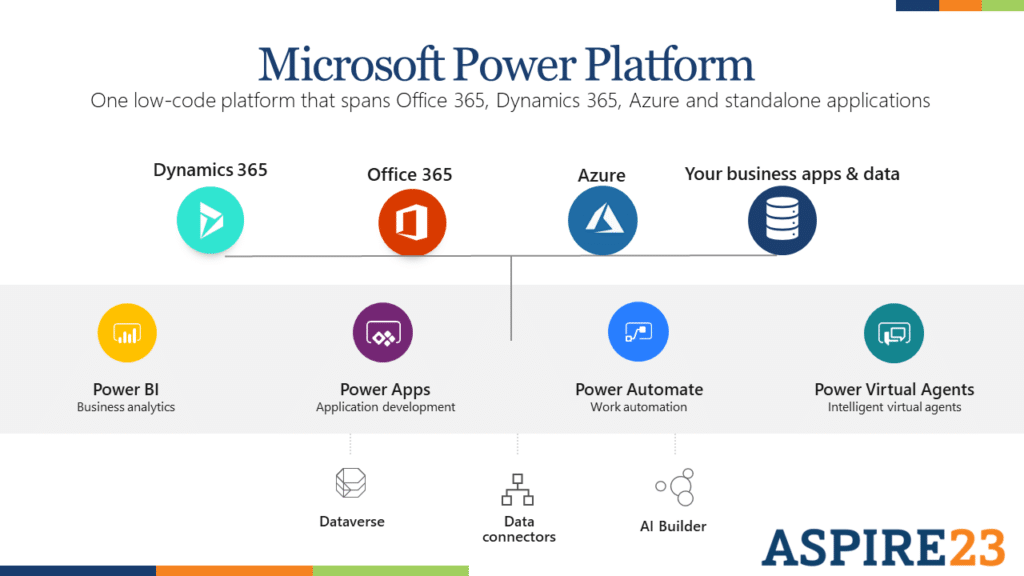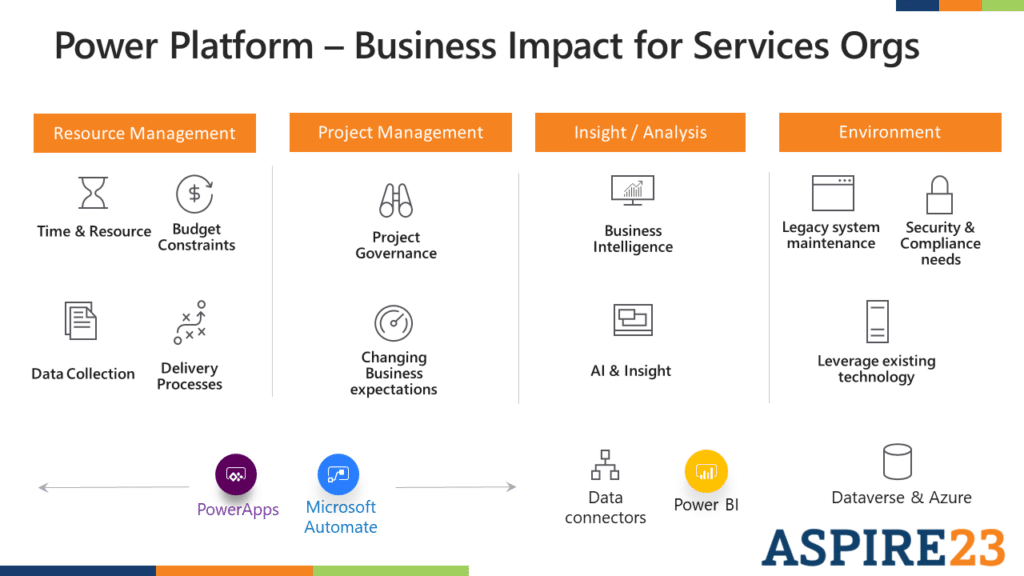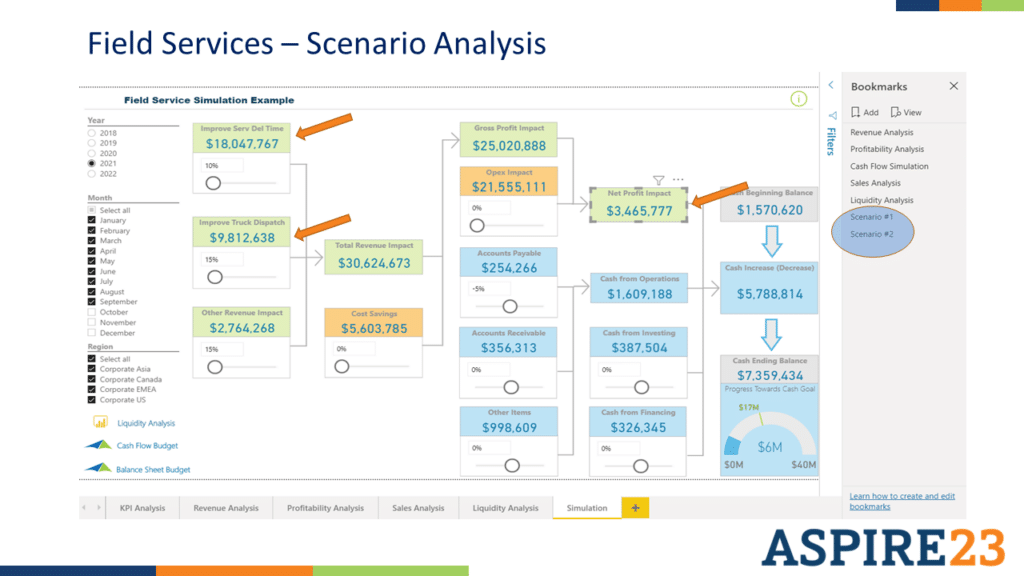Power Platform Solutions for Professional and Field Service Companies
Discover how Power Platform solutions provide a vital lifeline for businesses seeking to innovate and streamline operations.
Table of Content
In the evolving worlds of professional and field service industries, the need for agile, efficient, and integrated solutions has never been more pressing. Companies are seeking platforms that not only enhance their operational capabilities but also offer the flexibility to adapt to ever-evolving market demands. Enter the Power Platform – a holistic solution tailored to meet these exact needs. Seamlessly integrating with tools like Office 365, Dynamics 365, and Azure, the Power Platform stands as an indispensable tool aiming to streamline processes and drive innovation.
For professional and field service companies, the challenges are unique. From managing on-site operations to ensuring real-time communication and data access, the complexities are manifold. The Power Platform, with its suite of tools and applications, offers a lifeline. Whether it’s custom app development, automation of routine tasks, or harnessing the power of AI and machine learning, this platform is redefining how service companies operate, ensuring they stay ahead of the curve and deliver unparalleled value to their clients.
The Power Platform is bigger than the sum of its parts. This is an end-to-end platform for low-code and rapid development, for Office 365, Dynamics 365, Azure or your own custom app development or customization. And with the addition of newer tools like Power Virtual Agents and AI Builder becoming Generally Available, the platform is expanding every day.
For businesses who need to connect to existing systems to improve individual and team productivity, streamline business processes, and provide better insights for decision-making, the Power Platform provides easy-to-use technology and tools to help speed up development and empower non-developers to create applications and automated work Automates, providing more IT services and an improved user experience with lower TCO.

Unlike alternative solutions, it is a comprehensive cloud solution platform, with native connectivity to Office 365 and Dynamics 365, with a unified security model, data model, integrated AI and machine learning, and flexible business intelligence functionality.
With Power Platform, customers can reduce application development cost and effort by 70% and ongoing application management and maintenance cost and effort by 38%. They can improve worker productivity by 15% through streamlined, automated business processes which, paired with improved decision-making from better access to information, will also drive improved business outcomes.
For service organizations, there are several core categories that every entity grapples with daily. Let’s delve into these pivotal areas and understand how the Power Platform is revolutionizing the way service organizations operate:

The tools provided by the Power Platform lay the groundwork for enhanced productivity and value realization. Our journey at Vol SEO, and our daily interactions with the team, stand testament to the transformative impact of the Power Platform on services organizations.
The ability to anticipate and adapt to potential changes is invaluable in the field services industry. One emerging technological trend that’s proving instrumental in this regard is scenario analysis. By modeling various “what-if” scenarios, organizations can gain insights into potential outcomes and make informed decisions.
Take, for instance, the realm of service delivery. Imagine if a field service organization could enhance its dispatching efficiency, optimize logistics, and improve route management, leading to a 10% improvement in service delivery time. What would be the ripple effect on gross margins and, ultimately, profitability? With tools like Power BI, this isn’t just a hypothetical question. Organizations can create interactive tools that allow them to play out these scenarios in real time, gauging the potential impact of various changes.

But it doesn’t stop at service delivery. The same principles can be applied across various facets of the business. Whether it’s assessing the impact of adding new team members, integrating additional trucks, or reducing delivery times, Power BI provides a platform to model these scenarios. The beauty of this approach lies in its foundation: historical data. As rightly pointed out, the key to effective scenario analysis is having a rich reservoir of historical data. It’s this data that allows organizations to not just predict but also strategize, ensuring they’re always one step ahead in the game.
Scenario analysis, powered by tools like Power BI, is revolutionizing the way field service organizations operate. By leveraging historical data and modeling potential outcomes, these organizations can make smarter, more informed decisions, driving efficiency and profitability.
In today’s interconnected digital workspace, the ability to integrate and streamline tools is paramount. This is precisely where the Power Platform shines, especially when integrated with Microsoft Teams. Let’s delve deeper into how these tools, when combined, can elevate your business operations.
1. Unified Workspace with Microsoft 365: The Power Platform isn’t just a standalone entity; it’s deeply embedded within Microsoft 365. This integration means that if you’re already using Teams, you’re poised to leverage the full potential of the Power Platform. Whether it’s adding PowerApps or embedding Power BI reports directly into a Teams channel, the possibilities are vast. This seamless integration ensures that teams can collaborate efficiently, with all the tools they need at their fingertips.
2. Actionable Insights: Imagine viewing a report and wanting to take immediate action based on the insights. With the integration of PowerApps within Power BI, this has become a reality. Whether it’s initiating a new process, updating records, or even kicking off automation, the synergy between these tools ensures that insights are not just viewed but acted upon.
3. The Ever-Evolving Tech Landscape: As Aaron aptly pointed out, the beauty of technology is its constant evolution. There’s no finish line, no endpoint. This perpetual evolution ensures that tools like the Power Platform continue to adapt, innovate, and offer solutions to emerging challenges. With the integration of tools like GPT, the horizon only broadens, promising more innovations and solutions.
The fusion of PowerApps, Power BI, and Teams offers businesses a holistic solution, ensuring that insights are not just generated but also acted upon. As we navigate this ever-evolving technological landscape, the Power Platform stands as a beacon, guiding businesses toward efficiency, collaboration, and innovation.
The buzz around Artificial Intelligence (AI) is undeniable. From PCs to the internet, and even the ubiquitous cell phone, each technological revolution has reshaped the way we work and live. Now, as we stand on the cusp of another transformative era, ChatGPT is poised to redefine our interactions and workflows.
Understanding ChatGPT: At its core, ChatGPT is a sophisticated language model. Its primary function is to predict the next word in a sequence, making it adept at constructing coherent and contextually relevant sentences. Imagine having a vast reservoir of information, and whenever prompted with a question, this model sifts through its knowledge to craft a response. That’s ChatGPT in a nutshell. But while its current capabilities are impressive, it’s just the tip of the iceberg.
Beyond Language – The Data Revolution: While ChatGPT’s prowess in language processing is commendable, the real game-changer lies in its potential applications to data. With tech giants like Microsoft pouring resources into its development, the future vision for ChatGPT extends beyond crafting sentences. The goal is to harness its predictive capabilities to glean insights from vast datasets, offering actionable intelligence to businesses.
Implications for Professional and Field Services: As we navigate the early stages of this AI revolution, the potential applications for professional and field service organizations are vast. From automating routine tasks to providing real-time insights and even reshaping customer interactions, ChatGPT promises a future where data-driven decisions are the norm. And as investments in this technology grow, the horizon only broadens.
While we’re still in the nascent stages of integrating ChatGPT with platforms like the Power Platform, the potential is palpable. As we continue to explore and invest in this tech, the promise of a more efficient, insightful, and data-driven future awaits.
The digital transformation journey is a continuous one, marked by innovations, challenges, and opportunities. As we’ve explored, the Power Platform, combined with tools like ChatGPT, is at the forefront of this evolution, offering unparalleled solutions to the unique challenges faced by professional and field service industries. From streamlining operations and enhancing collaboration with Microsoft Teams to harnessing the predictive prowess of AI for actionable insights, the possibilities are vast.
But what does this mean for businesses like yours? It signifies a future where operational efficiency, data-driven decisions, and enhanced customer experiences are not just goals but realities. A future where the complexities of resource management, project governance, and data analytics are simplified, thanks to the seamless integration of tools and platforms.
The question isn’t whether to embrace these innovations but how best to leverage them for maximum impact. If you’re keen to explore how the Power Platform and its suite of tools can revolutionize your business operations, reach out to us. Let’s embark on this transformative journey together, ensuring your business stays ahead of the curve and continues to deliver unparalleled value in an ever-evolving landscape.